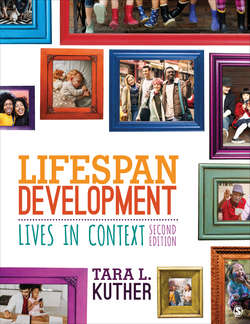Читать книгу Lifespan Development - Tara L. Kuther - Страница 127
На сайте Литреса книга снята с продажи.
Adoption
ОглавлениеAnother reproductive option for prospective parents is adoption. Adults who choose to adopt have similar motives for parenthood as those who raise biological children, such as valuing family ties, continuing a family line, feeling that parenting is a life task, and the desire for a nurturing relationship with a child (Jennings, Mellish, Tasker, Lamb, & Golombok, 2014; Malm & Welti, 2010). Heterosexual and same-sex adults report similar reasons for choosing adoption (Goldberg, Downing, & Moyer, 2012).
Adults choose to adopt for a variety of reasons, such as infertility, the desire to raise a child with a same-sex partner, and to provide a home for a child in need.
iStock/CREATISTA
Adoptive children tend to be raised by parents with higher levels of education and income than other parents. This is partly due to self-selection and partly because of the screening that adoptive parents must go through before they are allowed to adopt. Adoptive children also tend to spend more time with their parents and have more educational resources than other children (Zill, 2015).
Yet adopted children show less engagement in class and tend to have more academic difficulties. Longitudinal research suggests that adoption is associated with lower academic attainment achievement across childhood, adolescence, and emerging adulthood compared with nonadopted comparison groups (Brown, Waters, & Shelton, 2017). Adopted children are also more likely than their nonadopted peers to show psychological problems and adjustment difficulties, in some cases persisting into adulthood (Brown et al., 2017; Grotevant & McDermott, 2014; Palacios & Brodzinsky, 2010).
Children’s experiences prior to adoption and their developmental status at the time of adoption influence their outcomes (Balenzano, Coppola, Cassibba, & Moro, 2018). Children who experience neglect and fear and lack an early bond to a caregiver may experience difficulty regulating emotion and conflict. Biological mothers who choose to adopt may have experienced physical or mental health problems that interfered with their ability to care and form a bond and might be passed on. In other cases, the child may have experienced neglect, deprivation, and trauma, which influence adjustment (Grotevant & McDermott, 2014). Many children adopted from international orphanages arrive with experiences that are harmful, as discussed in the accompanying Cultural Influences on Development feature, Internationally Adopted Children.
